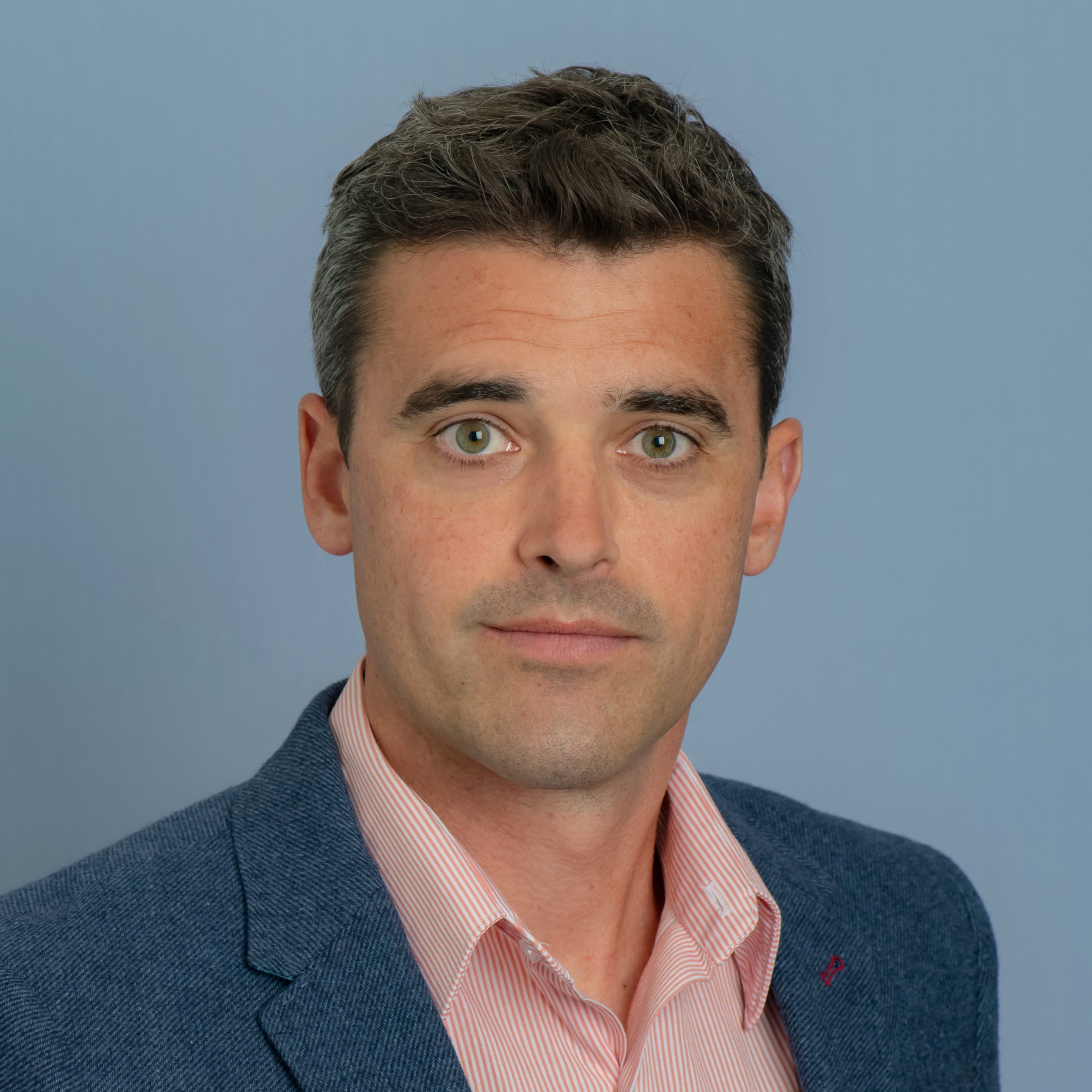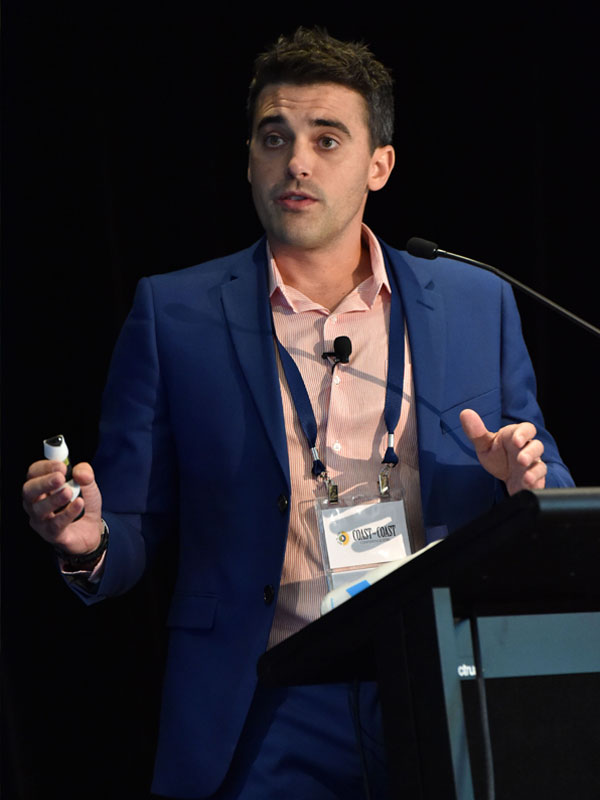Professor Peter Macreadie
Director Blue Carbon Lab
Deakin Marine Research and Innovation Centre
Deakin University, Burwood campus
221 Burwood Hwy, VIC 3125

Peter's research
Peter’s research focuses on understanding and responding to the impacts of global change in aquatic ecosystems (primarily marine, but also freshwater), and addressing all biotic components – from microbes, to plants, to fish, to megafauna. Most of his research effort is presently directed towards capitalising on ‘blue carbon’, which refers to the powerful ability of coastal vegetated ecosystems to sequester carbon, and thereby help mitigate climate change.
His approach is multi-disciplinary, spanning the fields of chemistry, ecology, microbiology, economics, molecular biology, and policy.
Keywords
Wetland, blue carbon, seagrass, mangrove, ecosystem services, carbon offset, restoration, carbon sinks, Nationally Determined Contributions (NDCs)
Career Highlights
- AFR Higher Education Award for Industry Engagement (2019)
- Vice-Chancellor’s Award for Mid-Career Researcher Award for Research Excellence, Deakin University (2017)
- Vice-Chancellor’s Award for Research Partnerships, Deakin University (2016)
- David Syme Research Prize, for ‘best original research in Australia undertaken in Biology, Physics, Chemistry or Geology’ (2015)
- AMP Tomorrow Maker Award (2015)
- NSW Tall Poppy Award, Australian Institute of Policy and Science (2013)
- The Sydney magazine’s top 100 most influential people in Sydney for 2011, The Sydney Morning Herald (#76) (2011)
- PhD Marine Ecology, University of Melbourne (2010)
- BSc (Honours) Biochemistry and Molecular Biology, University of Melbourne (2004)
Boards & Committees (current)
- Australian Government Blue Carbon Expert Working Group (2020-present)
- Victorian Marine and Coastal Council Science Panel (2019-present)
- Future Earth Australia Expert Working Group, Australian Academy of Science (2020-present)
- Chair, Independent Scientific Advisory Board, National Decommissioning Research Initiative (NDRI, 2019-present)
- International Blue Carbon Partnership (2018-present)

Selected publications
Macreadie, P.I., Robertson, A.I., Spinks, B., Adams, M.P., Atchison, J.M., Bell-James, J., Bryan, B.A., Chu, L., Filbee-Dexter, K., Drake, L., Duarte, C.M., Friess, D.A., Gonzalez, F., Grafton, R.Q., Helmstedt, K.J., Kaebernick, M., Kelleway, J.J., Kendrick, G.A., Kennedy, H., Lovelock, C.E., Megonigal, J.P., Maher, D.T., Pidgeon, E., Rogers, A.A., Sturgiss, R., Trevathan-Tackett, S.T., Wartman, M., Wilson, K.A., Rogers, K., 2022. Operationalizing marketable blue carbon. One Earth 5(5), pp. 485-492.
Friess D.A., Howard J., Huxham M., Macreadie P.I., Ross F., 2022. Capitalizing on the global financial interest in blue carbon. PLOS Climate 1(8): e0000061.
Duarte de Paula Costa, M. and Macreadie, P.I., 2022. The Evolution of Blue Carbon Science. Wetlands, 42(8), pp.1-12.
Macreadie PI, Costa MD, Atwood TB, Friess DA, Kelleway JJ, Kennedy H, Lovelock CE, Serrano O and Duarte CM, 2021. Blue carbon as a natural climate solution. Nature Reviews Earth & Environment, pp.1-14.
Friess DA, Howard J, Huxham M, Macreadie PI, and Ross F, 2022. Capitalizing on the global financial interest in blue carbon. PLOS Climate, 1(8): e0000061.
Dencer-Brown AM, Shilland R, Friess DA, Herr D, Benson L, Berry NJ, Cifuentes-Jara M, Colas P, Damayanti E, López García E, Gavaldão M, Grimsditch G, Hejnowicz AP, Howard J, Islam ST, Kennedy H, Kivugo RR, Lang’at JKS, Lovelock C, Malleson R, Macreadie PI, Andrade-Medina R, Mohamed A, Pidgeon E, Ramos J, Rosette M, Salim MM, Schoof E, Talukder B, Thomas T, Vanderklift MA, and Huxham M, 2022. Integrating blue: How do we make nationally determined contributions work for both blue carbon and local coastal communities?Ambio 51, pp. 1978–1993.
Lovelock CE, Adame MF, Bradley J, Dittmann S, Hagger V, Hickey SM, Hutley LB, Jones A, Kelleway JJ, Lavery PS, Macreadie PI, Maher DT, McGinley S, McGlashan A, Perry S, Mosley L, Rogers K, Sippo JZ, 2002. An Australian blue carbon method to estimate climate change mitigation benefits of coastal wetland restoration. Restoration Ecology, e13739.
Limpert KE, Carnell PE, Trevathan-Tackett SM, Macreadie PI (2020) Reducing emissions from degraded floodplain wetlands. Frontiers in Environmental Science| https://doi.org/10.3389/fenvs.2020.00008
Treby S, Carnell PE, Trevathan-Tackett SM, Bonetti G, Macreadie PI (2020) Assessing passive rehabilitation for carbon gains in rain-filled agricultural wetlands. Journal of Environmental Management 256: 109971.
Macreadie PI et al. (2019) The future of Blue Carbon science. Nature communications 10: 3998
Jänes H, Macreadie PI, Nicholson E, Ierodioconou D, Reeves S, Taylor M, Carnell PE. 2019. Stable isotopes infer the value of Australia’s coastal vegetated ecosystems from fisheries. Fish and Fisheries. https://doi.org/10.1111/faf.12416
Ollivier QR, Maher DT, Pitfield C, Macreadie PI (2018) Punching above their weight: Large release of greenhouse gases from small agricultural dams. Global Change Biology. DOI: 10.1111/gcb.14477
Carnell PE, Windecker SM, Brenker M, Baldock J, Maque P, Brunt K, Macreadie PI (2018) Carbon stocks, sequestration, and emission of wetlands in south eastern Australia. Global Change Biology doi.org/10.1111/gcb.14319
Macreadie PI et al. (2018) Eyes in the sea: unlocking the mysteries of the ocean using industrial, remotely operated vehicles (ROVs). Science of the Total Environment 634: 1077-1091
Trevathan-Tackett SM, Thomson ACG, Ralph P, Macreadie PI (2018) Fresh carbon inputs to seagrass sediments induce variable microbial priming responses. Science of the Total Environment 621:633-669
Pearse AL, Barton JL, Lester RE, Zawadski A, Macreadie PI (2017) Soil organic carbon variability in Australian temperate freshwater wetlands. Limnology and Oceanography 63: S254-S266
Selected media
Push to protect Blue Carbon sites (ABC 730 video report)
If we want to control greenhouse gases then we need to think ‘blue carbon’ (Australia’s Science Channel)
The fight to save the ‘armpits of the coast’ to store carbon (ABC news)
Huge blue carbon sink discovered in Great Barrier Reef could be warding off climate change (Newsweek)
Mandatory offshore rig removal needs a rethink, scientists say (BBC news)
Victoria’s inland wetlands store $6 billion in carbon stocks (SBS news)
What to do with decommissioned oil & gas structures? (ABC news)
Scientists hope wetland carbon storage experiment is everyone’s cup of tea (The Guardian)
